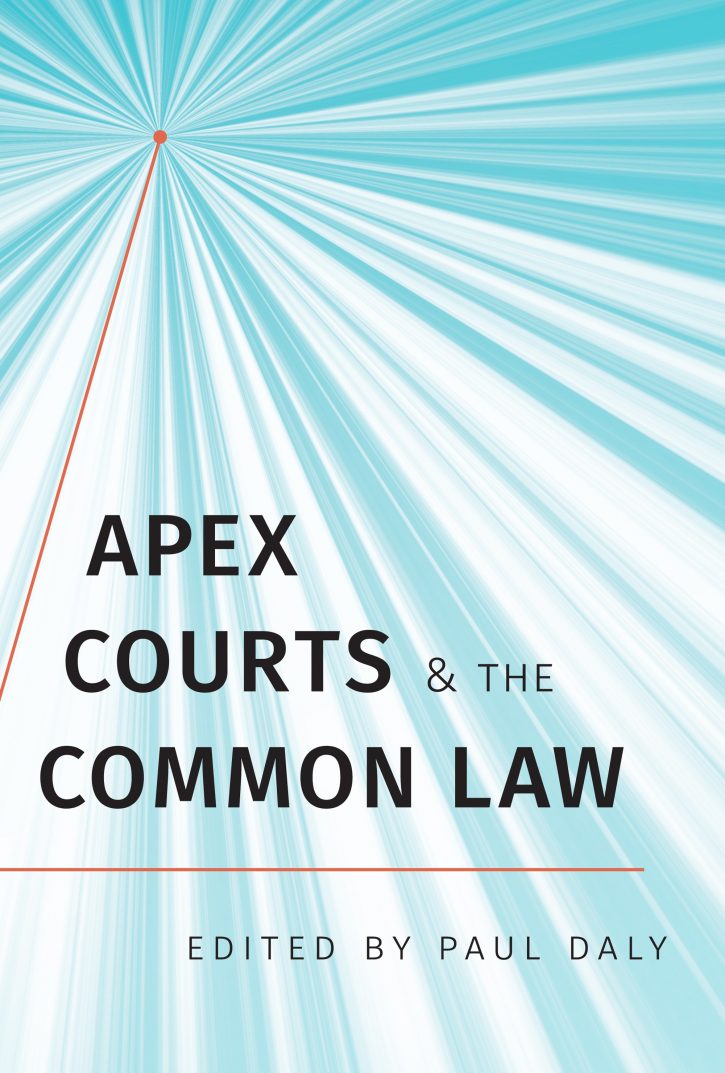
Apex Courts and the Common Law
A new edited collection from the University of Toronto Press Read more

A new edited collection from the University of Toronto Press Read more
This is the third post in a series. The first two can be accessed here and here. Sentencing of criminal defendants requires an individualised analysis of the offender, the offence and the public interest, with a view to fixing an appropriate punishment.[1] It is for a judge to fix the sentence, but she must do […] Read more
This is the second post in a series. The introductory post is here. In Bureaucratic Justice: Managing Social Security Disability Claims,[1] Professor Jerry Mashaw set out three influential “models” of administrative justice. Further iterations have been suggested by Michael Adler[3] and Robert Kagan,[4] but for present purposes Mashaw’s models are sufficient. A bureaucratic rationality model […] Read more
I was at the Socio-Legal Studies Association Conference today at the University of Leeds, presenting a work in progress, “Artificial Administration: Administrative Justice in the Age of Machines”. In this post, I explain my interest in this important issue We live in the era of Big Data, a term that “triggers both utopian and dystopian […] Read more
Today was supposed to be Brexit Day, the day Britain would leave the European Union, two years after triggering the departure process under Article 50 of the Treaty on European Union. Ironically enough, the United Kingdom would have left not when the clock strikes midnight in London, but at 11pm GMT, midnight in Brussels, a […] Read more
In previous posts I have set out reasons to doubt the prospects for the continued longevity of Chevron deference but I have also explained why these reasons for doubt should be not be over-stated. In this post, I outline the principal arguments of the anti-Chevron advocates, with particular reference to the opinion of then-Judge Gorsuch […] Read more
In a previous post I laid out some of the reasons to doubt the likely continued vitality of Chevron deference. In this post, however, I develop some doubts about those doubts. First, Kennedy J’s reasons in Pereira do not lend themselves to an unequivocal anti-Chevron reading. Although he suggested the “premises” underlying Chevron could be […] Read more
Doubts are gathering about the future of Chevron deference in the United States. Under sustained attack from the forces of judicial supremacy on matters of legal interpretation and shorn of some of its strongest defenders, Chevron seems to be on the ropes. In this post, I will lay out some of the signs of doubt […] Read more
The UK Supreme Court’s decision in R (Gallaher Group Ltd) v Competition and Markets Authority [2019] AC 96 has already spawned a large literature (for open-access commentary, see e.g. Mark Elliott and Joanna Bell). I noted the case when it was decided last summer but did not have much to say, treating it, first, as […] Read more
Here is a snippet of a piece to be published in the inaugural volume of the Irish Supreme Court Review: “Substantive Review in the Common Law World: AAA v Minister for Justice [2017] IESC 80 in Comparative Perspective” (full version available on request). How intensively courts on judicial review should scrutinise administrative decisions is a […] Read more